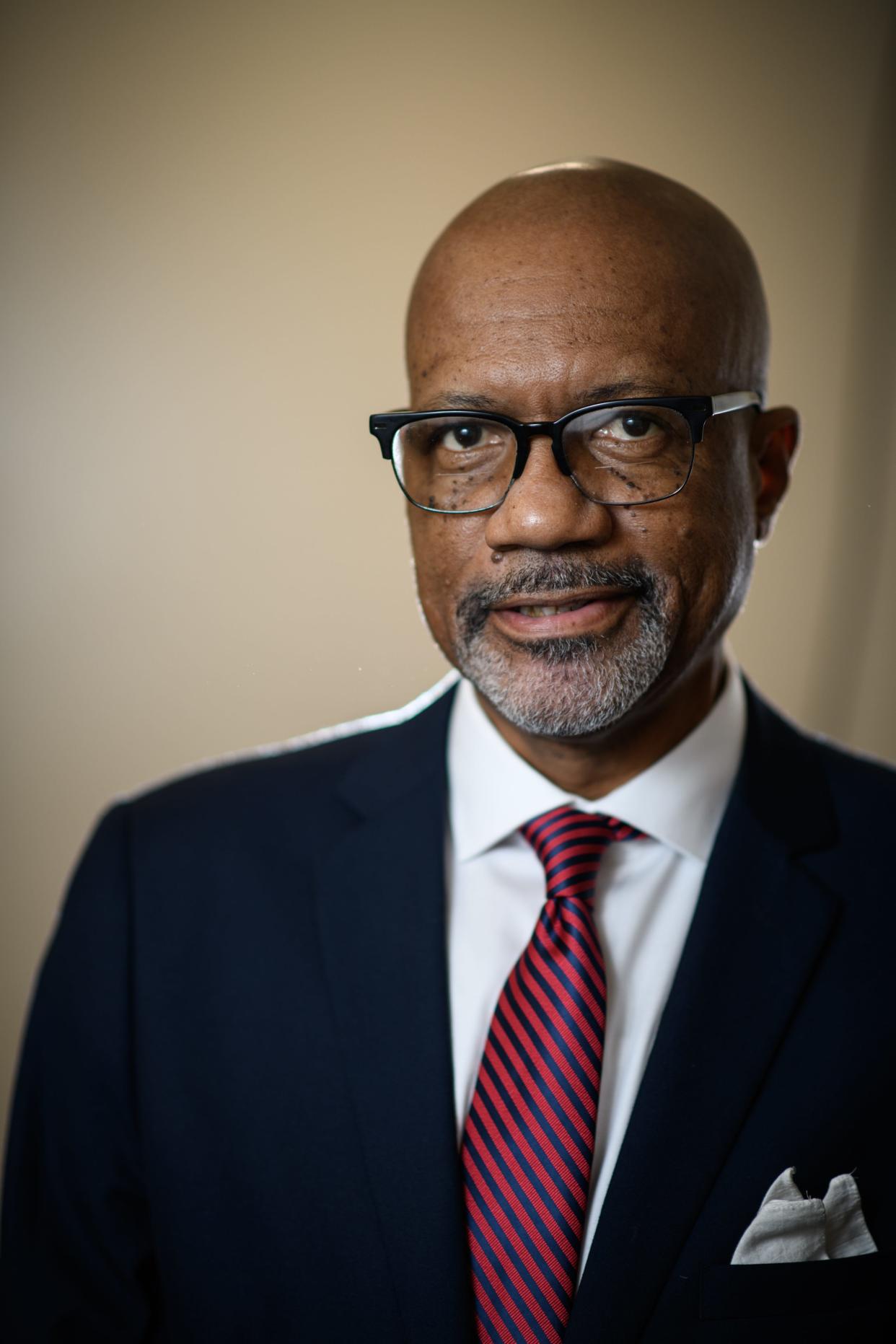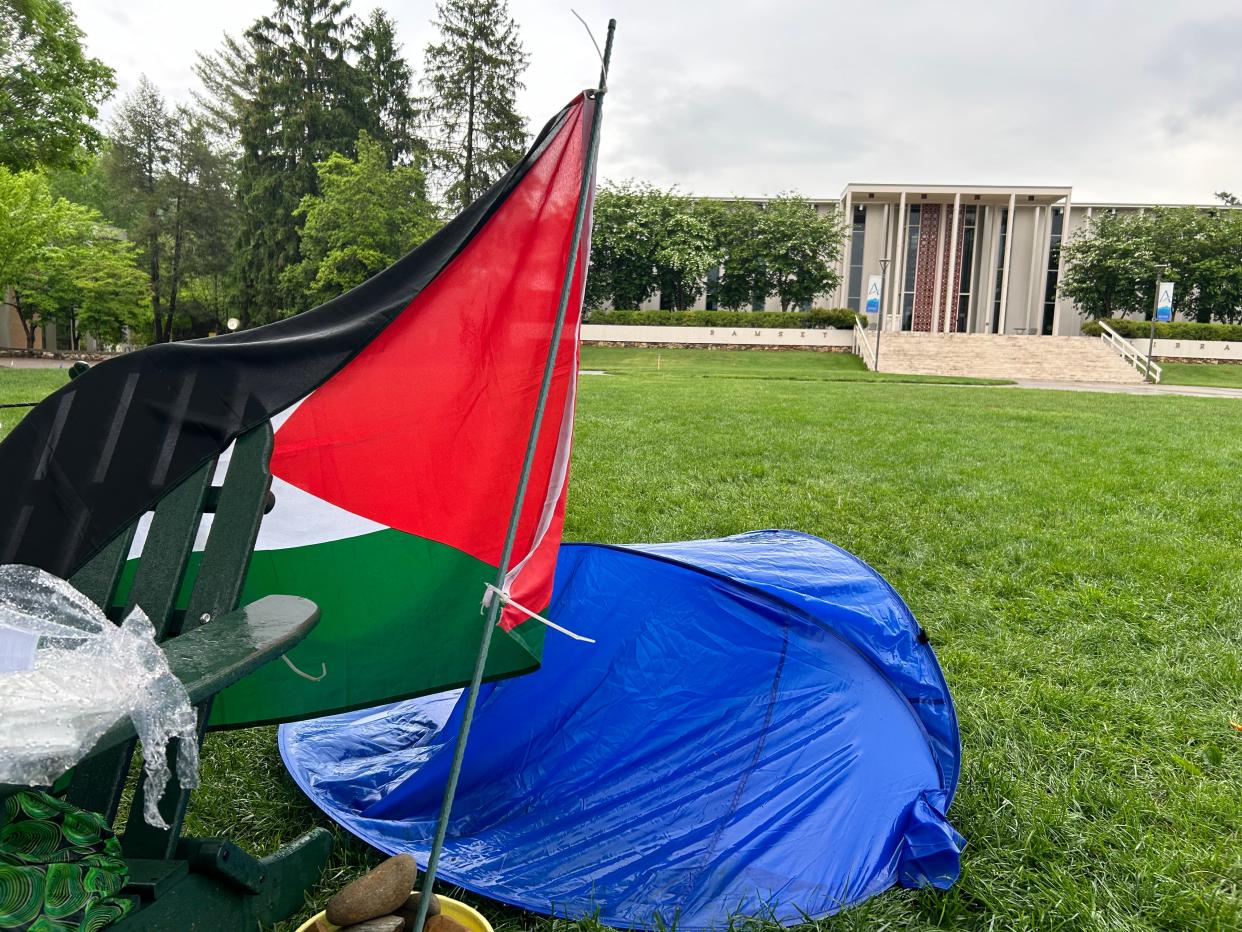UNC, other college protests test free speech and safety limits: How to strike a balance
The U.S. Constitution's First Amendment safeguards citizens' fundamental right to come together and express their opinions through peaceful protest.
Despite its inviolability, the current political climate may require some degree of compromise on the part of protesters to ensure their voices are heard without endangering their safety or the safety of others. Therefore, while the right to assemble and protest remains protected, it may need to be exercised with caution and flexibility to balance promoting free speech and maintaining public order.
Last month, the U.S. Supreme Court upheld a ruling that allowed a police officer injured by an unknown assailant during a Black Lives Matter protest to sue the protest organizer. This decision affects the First Amendment right to protest.

Unexpected outcome at Supreme Court
The central question is whether DeRay Mckesson, as the organizer of the protest, can be held accountable for the officer's injuries since he did not directly harm the officer himself but instead coordinated the demonstration. Mckesson led a protest in Baton Rouge in July 2016 after police killed a Black man. Was he aware, or should he have been, that the event held in front of the police station would turn violent?
More: Fayetteville CEO and veteran: From being unable to read to entrepreneur | Williams
More: Williams: Finding the will to stop the cycle of violence in Fayetteville
Mckesson showed up in court with the American Civil Liberties Union and his presumed free speech and assembly protections, but the outcome was unexpected. The Court's decision makes organizers responsible for illegal acts committed by protesters in Texas, Louisiana, and Mississippi. Other states may follow suit.
The effectiveness of nonviolent civil disobedience depends on how the public perceives it. It's ironic that the present situation coincides with the court's decision.

A compromise on student protests?
Pro-Palestinian protesters blocked major roads leading to Illinois, California, and New York airports, causing temporary travel disruptions. Some people consider these actions to be a minor inconvenience, while others may not share the same opinion.
College campus protests related to Gaza are increasing, causing fear and marginalization among Jewish students. At UNC-Chapel Hill, pro-Palestinian protesters replaced the American flag with the Palestinian one, leading to class cancellations and potential consequences for the protesters.
Can we reach a compromise or find a solution that satisfies both parties? Universities acknowledge the importance of providing students and community members a platform to voice their opinions through peaceful assemblies. However, university policies must be followed to ensure a safe and secure environment.
These policies dictate the rules and guidelines for organizing and conducting such assemblies, which include obtaining the necessary permits and adhering to specific time and location restrictions. By upholding these policies, universities can facilitate a meaningful exchange of ideas while prioritizing the well-being of all individuals involved.
Violence undermines legitimacy
Are the recent anti-Israel protests nonviolent? Evidence suggests that some are violent. It is crucial to ensure that nonviolent demonstrations remain peaceful to uphold our values of tolerance and respect for human rights.
Any violent acts committed during these protests undermine their legitimacy. Ultimately, some accountability must be taken for such actions.
Troy Williams is a member of The Fayetteville Observer Community Advisory Board. He is a legal analyst and criminal defense investigator. He can be reached at talk2troywilliams@yahoo.com.
This article originally appeared on The Fayetteville Observer: UNC and other campus protests: Striking a balance
